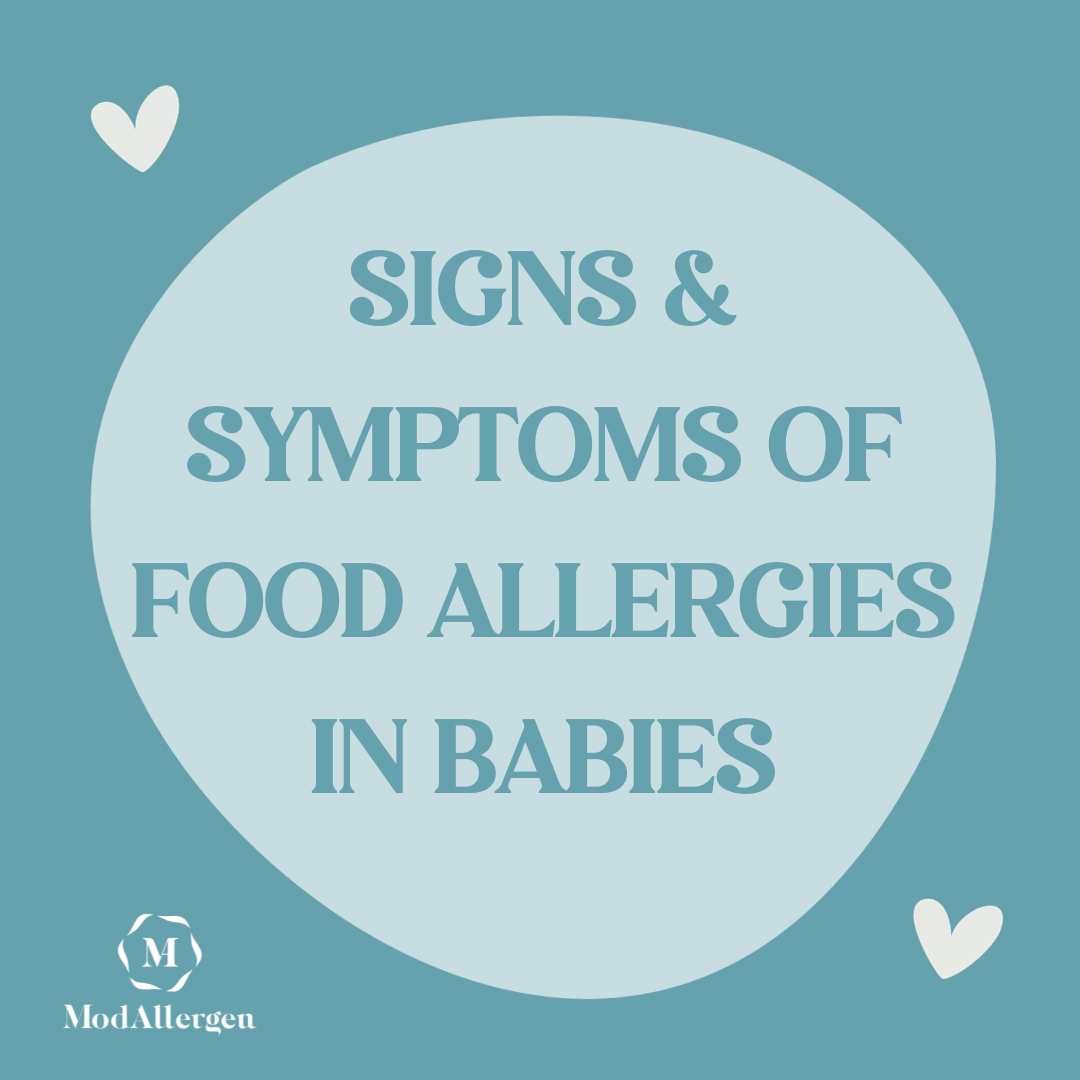Food allergies occur when the body's immune system reacts abnormally to specific foods. Although any food can cause an adverse reaction, certain foods are much more common culprits, especially in babies. These include milk, eggs, peanuts, tree nuts, soy, wheat, and fish. Recognising food allergy symptoms in babies is crucial for their safety and wellbeing.
Allergic reactions to food usually occur within two hours of consuming the allergenic food, and often within minutes. However, a small percentage of babies may experience delayed allergic reactions, which are typically due to FPIES.
It is important to note that the more of the allergen consumed, the more severe the reaction is likely to be. Therefore, it is recommended to start with small amounts when introducing new foods to your baby. Additionally, your baby may not have an allergic reaction the first time they are exposed to a food, so it is important to be watchful on the second and subsequent exposures.
Common Food Allergy Symptoms in Babies
1. Skin Reactions
- Eczema flare-ups: Babies with food allergies might experience a sudden or worsening of eczema. This can appear as red, itchy patches on the skin.
- Hives: These are red, raised, itchy welts on the skin that can vary in size and shape. They can pop up suddenly and can be the result of an allergic reaction.
- Swelling of the face, lips and eyes: Swelling may occur immediately or can take up to 4 hours to present. Introducing a new allergen earlier in the day is recommended so you can monitor bubs for any reactions.
2. Digestive Symptoms
- Vomiting: Shortly after eating the allergenic food, some babies may vomit.
- Diarrhoea or constipation: Changes in stool frequency or consistency might be due to a food allergy
- Bloody or mucousy stools: Though this can be a sign of other conditions, it can sometimes indicate a food allergy, especially if other symptoms are present.
- Abdominal pain: The baby might cry more, appear colicky, or seem uncomfortable.
3. Oral Symptoms
- Itchy mouth or throat: The baby might become fussy or try to scratch their mouth.
If you note any of the above symptoms, stop feeding the allergen and contact your paediatrician, family practitioner, or allergist for guidance.
If your child is having multiple symptoms, call local emergency services immediately and request an ambulance with auto injectable epinephrine.
Severe Allergic Reactions (Anaphylaxis) in Babies
Signs of a severe, anaphylactic reaction in babies include any one of the following symptoms:
- Persistent coughing or wheezing
- Difficult or noisy breathing
- Swelling of the face, lips or tongue
- Swelling in the throat and difficulty swallowing
- Repetitive vomiting
- Pale, floppy or losing consciousness
An important study showed that severe symptoms in babies under 12 months are extremely rare. The younger your baby, the less likely it is they'll have a severe reaction.
If you think your baby is having an anaphylactic reaction, call emergency services immediately.


Delayed symptoms & FPIES
FPIES (Food Protein-Induced Enterocolitis Syndrome) is a type of food allergy in children that can be severe and life-threatening. Unlike most allergic reactions (which can occur within minutes), FPIES allergic reactions occur within hours after consuming a particular food. For this reason, FPIES is sometimes known as a delayed food allergy. The most common food culprits of FPIES are cow’s milk products (such as formula), soy, oats, and rice, followed by other foods such as avocado, banana, barley, eggs, green beans, peas, meats, poultry, seafood, squash, and sweet potatoes. FPIES is extremely rare in exclusively-breastfed infants.
The classic presentation of FPIES is an infant who recently switched from breast milk to formula or started solids and begins vomiting between 1 to 4 hours and experiencing diarrhoea between 5 to 10 hours after eating the specific food culprit. Other symptoms include low blood pressure, low body temperature, extreme pallor, repetitive vomiting, and significant dehydration. Thankfully, most cases of FPIES will completely resolve during toddlerhood. If a child has been diagnosed with FPIES, they must be followed closely by an allergist or immunologist.

